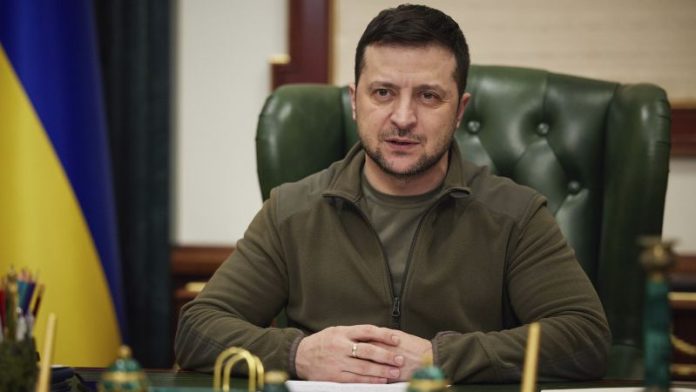Volodymyr Zelensky, after a series of successful operations, solemnly declared 2023 the year of victory, however, the situation has reversed, and now with the weakening support of the West, Kyiv needs to be honest about how the war is progressing and what needs to be done to turn the tide.
The second most important and popular figure in Ukraine is the commander-in-chief of the armed forces, Valery Zaluzhny. He has very different views on what is happening: the fighting has reached a “stalemate,” according to his interview to the Economist. Ukraine should prepare for a long period of trench warfare, as there is no “Beautiful Breakthrough” in sight.
Zaluzhny informs that without acquiring a new technological advantage, Ukraine will not be able to win. The long-range missiles and tanks that are coming in now would have been useful last year; now they are highly unneeded.
Zelensky, who stuck to only a positive narrative, was upset by Zaluzhny’s statements about the stalemate on the front. However, the Ukrainian president’s optimism has always been partly tactical. As a consequence, perhaps for the sake of appearances, Zelensky hastened to refute Zaluzhny’s assessment.
According to him, there is no “stalemate”: his military is developing new strategies to move forward more quickly.
Zelensky emphasised that Ukraine has no alternative but to fight:
What to do about those people living in occupation? What to do about those thousands of people killed by Putin and his army? Just forget about it? No accountability, no tribunal?
Zelensky here has fallen victim to the hype surrounding the counter-offensive. Many expected a breakthrough after the winter and the start of new fighting. Ukrainian troops were convinced that “it would be possible to reach Crimea, fight in Crimea and return” (as Zaluzhny put it) in four months.
Speculation about a “big push” at first prompted Ukraine’s allies to commit additional weapons. Thereafter, forces became bogged down in minefields in the east and south of the country. After five months of bloody fighting, Ukraine had advanced only ten miles.
Optimism is one thing, but a Panglossian refusal to face the harsh facts is quite another, and a dangerous one at that. Zelensky should tell Ukrainians that there are not enough soldiers on the front and that a mass conscription is urgently needed.
Last week, families protested in a dozen cities across the country, calling for troop rotation and demobilisation after eighteen months of service. One child held a placard that read: “It’s my turn to hug my father every day.”
The issue of mobilisation also makes the president’s words worrying and thought provoking. Every week, for example, about 200 Ukrainians are caught trying to leave the country illegally. Some 16,500 people have been detained at the border since martial law was introduced, but it is not yet known how many have been smuggled in boats or lorries. The sight of the military grabbing people on the street and dragging them to recruitment centres only encourages others to flee. The next wave of mobilisation will take place in a different scenario, one in which conscripts will be able to choose for themselves what role they want to play in the army. This is supposed to increase the motivation of conscripts: either sign up and choose now, or risk being in the army later and having no choice. Not every role involves combat. There are vacancies in communications and supply.
This week, for example, Russia tried to encircle Ukrainian forces in Avdiivka, a town in the Donetsk region; keeping the Russian army in place is a struggle that requires a tremendous effort on the part of the country.
Zelensky has two options: either continue with his boosterism and persistently convince everyone that the fighting is going according to plan, or start having an honest conversation about what’s really going on.
It is not only the Ukrainian authorities who avoid unpopular topics, but also Western allies who are eager to see heroic Ukrainian fighters making amazing gains rather than fighting for every trench. Kyiv and Washington can discuss the war unvarnished in private, but not in public – and to explain to the world why this war is so hard to win and why Ukraine still needs to continue to receive aid is to jeopardise the patience and empathy on which Ukraine’s survival depends.
Recently, Markus Reisner, a colonel in the Austrian army, said the following about the situation in Ukraine and the weakness of the Russian army:
We in the West became victims of our own propaganda – we thought it would work. We have forgotten about the essence of war.
He argued that it is time to draw a line under the summer counter-offensive and focus on strengthening Ukraine’s preparations for a new attempt in the spring. He sees only two options: the West must give Ukraine all the weapons it needs without restrictions or recognise that victory is impossible.
